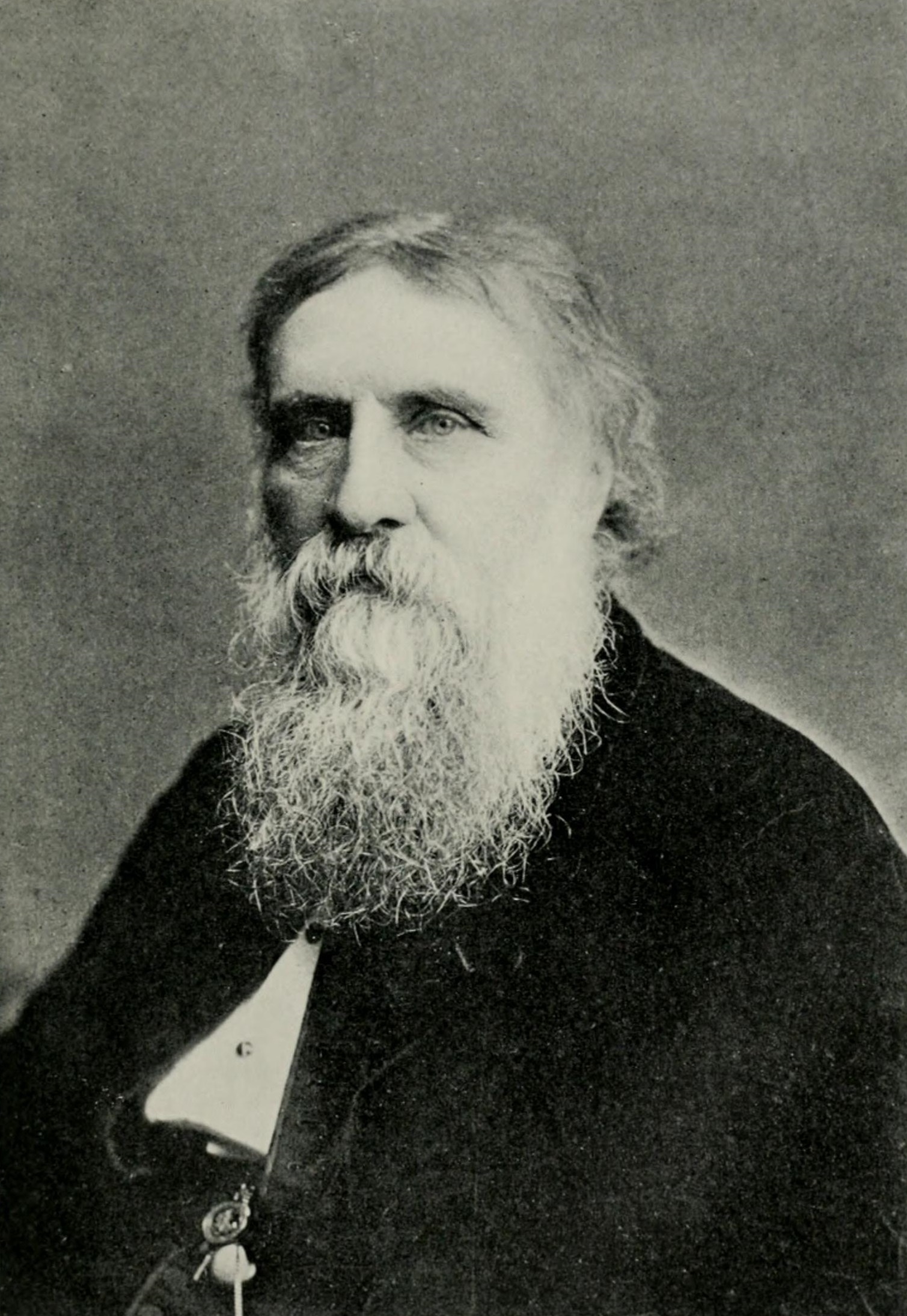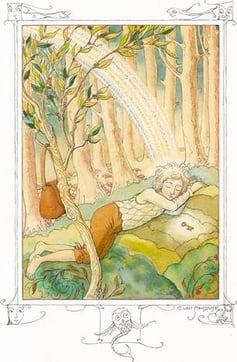For a while in the West it’s been somewhat difficult for Christian intellectuals to be taken seriously. Though not exactly extinct (Marilynne Robinson comes to mind), religious writers are hard to find, and they are often dogged by the presumption that to be credible you must be secular. Even Christian writers of generations past, like G.K. Chesterton, J.R.R. Tolkien, and C.S. Lewis, felt and battled this anxiety. But for these thinkers, the Scottish author and minister George MacDonald presented an enduring model for being both an intellectual and a person of faith.
 George MacDonald was born in 1824 to a modest life (his father was a farmer), but his family was composed of immensely literary people, including a Celtic translator, a Shakespeare scholar, and his own parents, who took to poetry and scientific thinkers like Newton and Darwin.
George MacDonald was born in 1824 to a modest life (his father was a farmer), but his family was composed of immensely literary people, including a Celtic translator, a Shakespeare scholar, and his own parents, who took to poetry and scientific thinkers like Newton and Darwin.
In his twenties, MacDonald was appointed a pastor in a church in southern England, but his sermons of Christian universalism—which proposed that no soul would really suffer eternal damnation—were a bit too radical for his fellow clergy. Soon, the ideologically freewheeling young pastor would have his pay cut in half, and he was compelled to find employment elsewhere.
After a recuperative trip in Africa, he became a teacher in London. In 1855, at the age of 31, he published his first work, Within and Without, a poetic play. He began to carve a space for himself as a writer while also befriending the luminaries of his time. He struck a friendship with writer and art critic John Ruskin. In 1862, he also befriended Reverend Charles Dodgson, a talented mathematician and photographer who would one day write Alice’s Adventures in Wonderland under the pseudonym Lewis Carroll. Indeed, it was George MacDonald who read the manuscript aloud to his receptive children and encouraged Dodgson to lengthen and publish it. Their friendship also produced a handful of fine photos that Dodgson took of MacDonald and his family.
In terms of further elbow rubbing, there is a group photo (though hard to find on the internet) of MacDonald alongside Charles Dickens, Alfred, Lord Tennyson, William Makepeace Thackeray, Wilkie Collins, John Ruskin, and Anthony Trollope. And, when the writer went on a sermon-lecture tour in 1872, he struck up brief friendships with the likes of Ralph Waldo Emerson and Mark Twain. He also enjoyed the company of luminaries in other cultural fields like music, theatre, and art.
Yet the legacy of his writing remains strongest. Later in life, he published books of his sermons, displaying the same daring theology that miffed conventional clergymen of his day (especially his doctrine of eternal forgiveness). But he is most famous as a masterful writer of children’s stories and fairy tales, often reaching great heights of superb, dreamlike fantasy. MacDonald’s work, on both these artistic and theological fronts, is the reason he was so well-regarded by his successors. C.S. Lewis, a major advocate, said of MacDonald: “I have never concealed the fact that I regarded him as my master; indeed I fancy I have never written a book in which I did not quote from him.”
 MacDonald’s fairy tales are true in their name, which is to say they frequently inhabit the dreamlike and surreal. In one of his most beloved stories, “The Golden Key,” a child journeys into a fantastical world where a fish flies through the air to guide him to an old crone’s home. There, the fish then plunges into a cooking pot to be eaten (voluntarily, we are told), while after, a winged figure leaves the pot (perhaps its soul?), which is not the fish itself. Because of its vivid fantasy and otherworldly imagery, “The Golden Key” makes for a superb story when illustrated, and a special version by the great illustrator Charles van Sandwyk is sure to impress.
MacDonald’s fairy tales are true in their name, which is to say they frequently inhabit the dreamlike and surreal. In one of his most beloved stories, “The Golden Key,” a child journeys into a fantastical world where a fish flies through the air to guide him to an old crone’s home. There, the fish then plunges into a cooking pot to be eaten (voluntarily, we are told), while after, a winged figure leaves the pot (perhaps its soul?), which is not the fish itself. Because of its vivid fantasy and otherworldly imagery, “The Golden Key” makes for a superb story when illustrated, and a special version by the great illustrator Charles van Sandwyk is sure to impress.
Other novels by MacDonald, like The Princess and the Goblin, Phantastes, and his final work, Lilith, pronounce his legacy as a writer who created stories for children and adults alike, helping to establish the fantasy genre—with all of its powerful symbolic and spiritual undertones—for generations of writers after. If you have ever been ensorcelled or enchanted by a work of fantasy literature, it is likely it owes something to the wondrous vision of George MacDonald.









